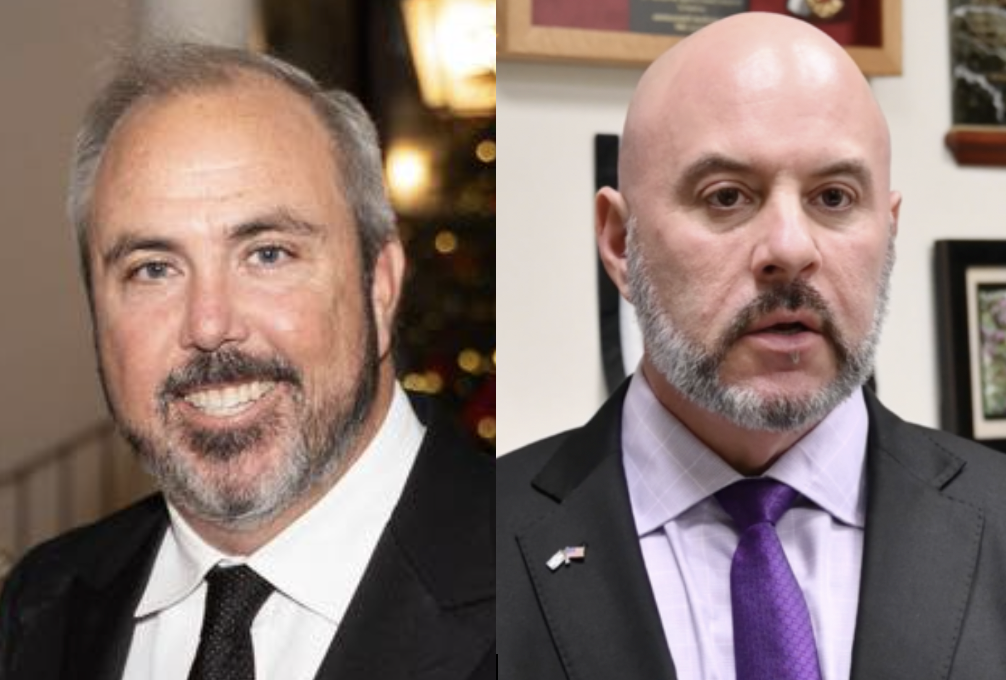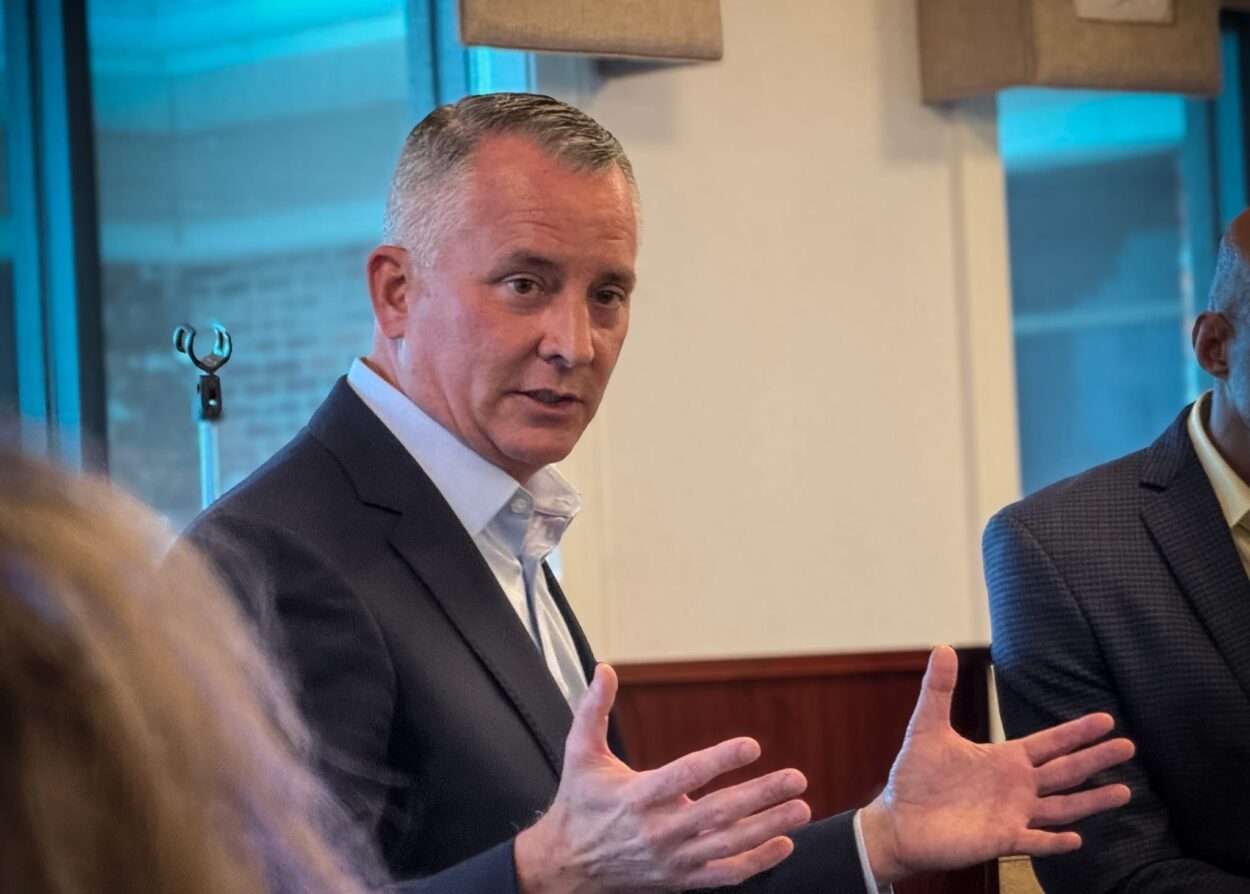By Javier Manjarres, Publisher of The Floridian
When the Miami Herald devotes its entire front page to a photo of the CEO of Florida Power and Light with the headline “How Florida Power & Light executives surreptitiously took over and used it to bash its opponents,” we can only assume this is going to be a blockbuster of a story.
It wasn’t.
But it was an important story in that it raised many questions about the nature of agenda-driven journalism and advocacy in Florida these days. Maybe not the questions the Miami Herald wanted to raise, but nevertheless important ones.
First, some background.
The website that was the subject of the Miami Herald story is called The Capitolist and it is operated by editor and publisher Brian Burgess, a former spokesman for former Gov. Rick Scott.
“While portraying itself as a feisty independent outlet, the Capitolist – which aims its content directly at Tallahassee decision makers – was bankrolled and controlled by executives of the power company through a small group of trusted intermediaries from an Alabama consulting firm, according to an investigation by the Miami Herald, based on a massive leak of documents,” the Herald wrote.
“The internal communications, contracts and financial records show how a team of elite communications experts consulting for FPL plucked the Capitolist from obscurity and used it as part of an elaborate, off-the-books political strategy to advocate for rate hikes, agitate for legislative favors, slam political opponents and eliminate anything – even home solar panels – that the publicly traded utility worried might undermine its near monopoly on selling power in the Sunshine State,” it said.
And so the questions begin.
First, what’s with this so-called massive leak? Where did it come from? How were the documents authenticated?
The Miami Herald gave short shrift to this subject, never disclosing how it obtained the documents or from whom. But it did acknowledge that the documents came from a political consulting firm that is currently engaged in a nasty lawsuit with some former employees and that questions have been raised about the authenticity of some documents. All of this should raise questions about the motivations of the leaker and whether readers are being duped as part of an elaborate legal strategy.
In the Miami Herald story, FPL said it doesn’t own the website or have editorial control over it. So, what does the Capitolist say?
The Capitolist published a detailed account of its work on Friday, July 29, none of which found its way into the Sunday, July 31, Miami Herald. It’s worthwhile reading.
In it, Burgess explains that he has about a dozen advertisers and sponsors who support his work because they believe the legacy media doesn’t give businesses in Florida a fair shake. He seeks to tell more complete stories, he said. His advertisers are identified but donors are not disclosed “so that they are not subjected to competing requests for financial support from other media, websites, etc.”
As for being “controlled” by FPL, Burgess points out that a tiny fraction of the 4,425 stories he has published in six years have referenced FPL and says he stands by all the stories he has published.
He makes a compelling case for his business value and the manner in which he operates.
All of which raises broader questions about media ownership and motivation in Florida.
For instance, the Miami Herald didn’t mention in its reporting on the Capitolist that its parent company, McClatchy, once a prestigious family-owned newspaper chain, is in fact owned by a hedge fund and that the McClatchy family has nothing to do with it.
The New Jersey-based hedge fund is called Chatham Asset Management. It is also the owner of the National Enquirer and other supermarket tabloids not known for journalistic integrity.
It is in business for one purpose – to make money. For example, in 2016, it took a majority stake in Postmedia, one of Canada’s largest newspaper companies, and proceeded to lay off 1,600 employees, and shut down 30 newspapers to maximize profits.
The ownership of Chatham Asset Management is opaque. Its investors have many different motivations. So, when one of its newspapers attacks a publicly traded company, it raises questions about whether its investors are waiting in the background hoping to make money shorting stock.
And before the Miami Herald begins wringing its hands about that question, remember that it’s a fair question when you are owned by an entity that is primarily a financial instrument. That’s a choice you made.
There are many more questions that are being raised by this story and others like it.
For example, the Miami Herald partnered in its so-called “investigation” with a 501(c)(3) called Floodlight.
Floodlight describes itself this way: “Floodlight is a nonprofit news organization that investigates the people and corporations stalling climate action.”
Obviously, there’s an inherent assumption of guilt evident in that statement. It is not a statement embracing objective journalism.
Another so-called investigative outlet that partners with Florida’s legacy media is called ProPublica.
ProPublica says its mission is: “To expose abuses of power and betrayals of the public trust by government, business, and other institutions, using the moral force of investigative journalism to spur reform through the sustained spotlighting of wrongdoing.”
What is doesn’t say is that it will follow stories wherever they may lead and that it will report on the results no matter what they find, without favor to any party.
It doesn’t say that because it doesn’t do that. It’s bought-and-paid-for journalism with a political agenda. It starts and ends with an assumption of guilt.
There are many more examples of agenda-driven journalism in Florida.
For example, as recently as a few months ago, the Orlando Sentinel’s former investigative reporter Jason Garcia formed his own independent news blog and his left-leaning friends began soliciting sponsors for his blogs. The “ask” was reportedly $30,000 per sponsor. I wonder what the “give” is.
All of this would be one thing if it was simply about the hypocrisy of legacy media.
But there is a dangerous downside to that hypocrisy. According to Gallup polling in 2021, trust in the media was at the second lowest level in its history. That’s a bad outcome for our democracy.
The Miami Herald’s latest attempt to quash the voices of independent media is the wrong answer.
Now more than ever, there is a need for independent media outlets that will shed a different light on the issues of the day. Just ask Gov. Ron DeSantis, who alongside the Republican Party of Florida (RPOF), shunned the legacy media at the 2022 Sunshine Summit because of their biased reporting. The media meltdown over DeSantis blackballing them was epic.







